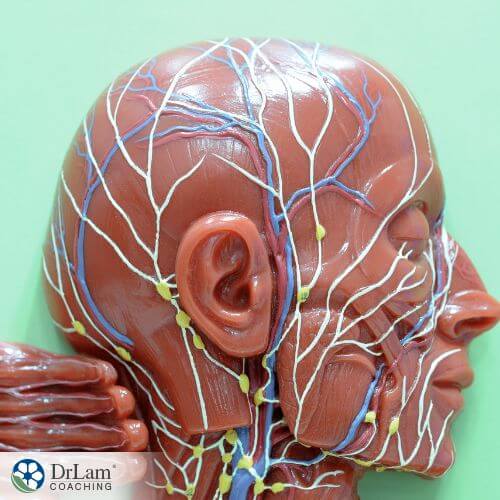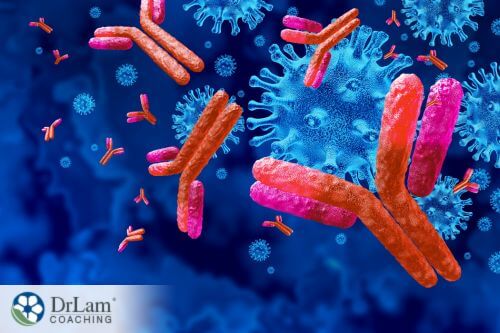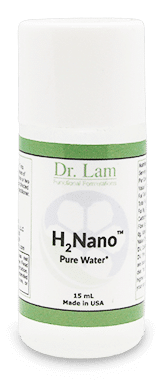 Your body has many important duties to carry out for optimal health. To help it perform these duties, it has twelve different systems to assist, such as the respiratory system and the digestive system. The lymphatic system is one of these twelve systems, and it plays a key role in protecting your body from illness and facilitating the removal of toxins. When imbalances in this system occur, it can seriously affect your health. This article will explore the role of the lymphatic system in your body, how it works, what happens when there is an imbalance, and what you can do to support it.
Your body has many important duties to carry out for optimal health. To help it perform these duties, it has twelve different systems to assist, such as the respiratory system and the digestive system. The lymphatic system is one of these twelve systems, and it plays a key role in protecting your body from illness and facilitating the removal of toxins. When imbalances in this system occur, it can seriously affect your health. This article will explore the role of the lymphatic system in your body, how it works, what happens when there is an imbalance, and what you can do to support it.
The lymphatic system is a network of tissues, vessels, and organs that includes:
Lymph fluid is a clear fluid that consists of white blood cells and fluid from the intestines called chyle that contains proteins and fats. This fluid is created when blood that travels through the arteries leaks out. The body then returns this lymph fluid to your veins.
The role of the lymphatic system is to transport the lymph. The lymph fluid runs through the connective tissues that surround and holds your organs, blood vessels, muscles, nerves, and bones in place. Lymph is also known as liquid fascia as it supports the connective tissues that surround and hold everything in place.
Blood contains red blood cells, clotting agents, oxygen, and nutrients whereas lymph contains less oxygen, is a colorless fluid, and contains white blood cells. Whilst it does contain nutrients, it contains mainly digested proteins and fats. The arteries and veins transport blood, whilst the lymphatic system transports lymph through lymph vessels, nodes, and ducts.
However, there is a relationship between these fluids. The leaked-out plasma from the arteries forms the lymph fluid, and the lymphatic system returns the lymph fluid to the veins through lymphatic ducts.
Your lymphatic system is responsible for maintaining the balance of lymph fluid within your body. It does this by collecting any excess lymph fluid and returning it to the bloodstream. Without this function, excess lymph fluid would accumulate and cause swelling.
Whilst lymph fluid contains white blood cells, your lymph nodes have an even higher concentration of white blood cells. When lymph fluid moves past your lymph nodes, the high concentration of white blood cells helps to attack any bacteria or viruses found within this fluid.
The spleen, one of the organs of the lymphatic system, helps to filter out your blood, replacing old red blood cells with new red blood cells that your bone marrow produces.
When blood plasma seeps through your veins, it may contain waste products and toxins such as free radicals. These are unstable molecules created due to stress, illness, and environmental pollutants. Your lymphatic system then moves the waste products and toxins to parts of the body such as the liver and kidney to be excreted.
 The lymph nodes, organs, and lymph fluid contain white blood cells that can attack bacteria, viruses, and germs. The lymphatic system also assists with enhancing your immune system. This is done through white blood cells that produce special proteins called antibodies. These antibodies protect your body from illness.
The lymph nodes, organs, and lymph fluid contain white blood cells that can attack bacteria, viruses, and germs. The lymphatic system also assists with enhancing your immune system. This is done through white blood cells that produce special proteins called antibodies. These antibodies protect your body from illness.
The lymph fluid consists of the chyle that your intestine produces and contains proteins and fats. The lymphatic system will return these nutrients to your blood, assisting with their absorption.
Your lymphatic system is effective at helping to protect your body against illness as well as in removing waste products and toxins. However, if there is an imbalance within this system, it can result in a range of different conditions such as:
While your lymphatic system transports lymph fluid around your body back to your veins, it does not have a pump, like in the vascular system that uses your heart as a pump. Instead, it uses the changes of pressure from the movement in the skeletal muscles, the respiratory system, and the contraction of smooth muscle that is generally found in your organs (1). When there is an imbalance within the lymphatic system, lymph fluid cannot be effectively transported to back to the veins. This results in lymphedema as well as an accumulation of toxins within the body.
Without sufficient water, lymph fluid becomes thicker, resulting in reduced flow. This can result in the lymph fluid not draining adequately and accumulation of lymph fluid within your body. Drinking sufficient water will help improve your hydration status and prevent the lymph fluid from becoming thick. This will help the lymph to flow and to flush toxins out of your body.
One supplement that can be added to water is hydrogen water, also known as H2 water. This water is more of a solid structure than a liquid structure and is free of toxins. It also acts as an antioxidant helping to assist with neutralizing toxins. This water can be used in combination with regular water and added to distilled water. This will help boost the effects of the water and further enhance your lymphatic health. One brand of H2 water available is H2Nano. This is a water supplement that is added to distilled water. In order to receive the desired effects from H2Nano, four drops are needed when added to water.
Since your lymphatic system relies on the contraction of muscles to drain the lymph fluid, exercise can help to promote a healthy lymphatic system. Exercises such as walking, jogging, and swimming may help to promote the movement of lymph. Another form of exercise that may help to stimulate the lymphatic system is the use of rebounding. These exercises will use the pressure gradients from the muscles, added to the contraction of muscles, to improve lymph drainage. As lymph is drained, the toxins will be transported to parts of the body where they can be excreted and some of the lymph fluid will be returned to the veins.
 An unhealthy weight can also affect the health of your lymphatic system. As weight increases into the obese range, the movement of lymph fluid reduces. This leads to an increase in lymph fluid as well as an increase in fats due to the high-fat content of lymph fluid. Maintaining a healthy weight through nutrition and exercise will not only support your weight but improve the movement of lymph within the body (2).
An unhealthy weight can also affect the health of your lymphatic system. As weight increases into the obese range, the movement of lymph fluid reduces. This leads to an increase in lymph fluid as well as an increase in fats due to the high-fat content of lymph fluid. Maintaining a healthy weight through nutrition and exercise will not only support your weight but improve the movement of lymph within the body (2).
Your lymph fluid helps to remove toxins throughout the body and also helps to regulate inflammation in your body, reducing further toxins (3). However, free radicals from environmental toxins, stress, illness, and regular cellular processes can increase inflammation and overburden your lymphatic system. Antioxidants can help to neutralize these free radicals. There is a wide range of antioxidants that are found naturally in food as well as available in supplements.
The most potent antioxidant is glutathione. Your body naturally produces glutathione. However, when toxins are increased in your body, glutathione levels can become depleted. Increasing levels through supplementation can help to replenish the levels and preserve other antioxidants in the body, such as vitamin C.
LipoNano Glutathione is one example of a glutathione supplement. One interesting characteristic of this supplement is that it is a liposomal product, meaning that it has a lipid coating. This protects it from being digested and improves its absorption, ensuring that a high percentage of glutathione is absorbed. It also contains other potent antioxidants that can support the lymphatic system such as alpha-lipoic acid and L-carnitine.
Enhancing the health of your extracellular matrix (ECM) can also help to improve the health of your lymphatic system. The ECM is a network of nutrients, including vitamins and minerals, that occur out of your cells, provide structural support to the lymphatic system, and help to synthesize new vessels for the lymphatic system (4).
There are many factors that can affect the health of the ECM. One factor that can affect it is toxins. If the ECM has a high level of toxins, its health will be comprised. Assisting in the removal of these toxins can improve its health.
One way to enhance its health is through a patch system that contains beneficial ingredients that can be absorbed through the skin and in the ECM. The Matrifix patch is an example of a patch that supports the ECM. This patch contains activated charcoal that can trap toxins and other impurities, helping to support a healthy ECM and thus a healthy lymphatic system.
The NeuroEndoMetabolic (NEM) Stress Response System is a system that helps your body to respond to stress. There are six circuits of related organs and systems in it, and one of these circuits is the detoxification circuit. This circuit consists of the liver, interstitium, and immune system. Your lymphatic system, whilst it may not directly be an organ involved in detoxification, plays an indirect role as it transports toxins to the liver and is a part of your immune system.
 When your body experiences stress, the NEM system helps manage the body's response, but chronic stress can lead to the condition Adrenal Fatigue Syndrome (AFS). AFS is the non-Addison's form of adrenal dysfunction, where the body's stress response cannot keep up with life's chronic stressors.
When your body experiences stress, the NEM system helps manage the body's response, but chronic stress can lead to the condition Adrenal Fatigue Syndrome (AFS). AFS is the non-Addison's form of adrenal dysfunction, where the body's stress response cannot keep up with life's chronic stressors.
AFS can result in imbalances in the different circuits, including the detoxification system, and result in the body being unable to effectively remove waste products and toxins. This can lead to a wide range of different symptoms such as sensitivity to supplements or food, fatigue, and brain fog.
Maintaining the health of the lymphatic system can help to support the detoxification circuit. However, in times of AFS, caution needs to be practiced. If you are looking at increasing your activity levels, opt for exercises that will help calm your nervous system such as yoga. If you are considering a supplement to assist your lymphatic system, always check with your healthcare provider before taking it. This will reduce the risk of your body reacting negatively to it and pushing you back in your healing journey.
Your lymphatic system is an important system that plays a role in:
A healthy lymphatic system will help ensure that these duties are carried out and help to ensure optimal health. There are a range of different strategies available to assist in optimizing the health of your lymphatic system.
If you are concerned that the health of your lymphatic system is poor, Dr. Lam's Adrenal Fatigue Recovery Program can help! You'll learn about the various stages of adrenal fatigue and receive guidance on utilizing supplements effectively to aid recovery. The course not only enlightens you on the right foods to consume but also introduces exercises that are beneficial for managing this condition. Additionally, by sharing the challenges and pitfalls he faced during his own recovery journey, Dr. Lam equips you with valuable insights to navigate your path to wellness successfully!

Support your lymphatic health with H2Nano!
Risk factors that will reduce the drainage of the lymphatic system include obesity, low activity levels, infection, and conditions affecting the blood vessels, heart, and kidneys as well as surgeries that have affected the lymphatic system by removing lymph nodes or damaging lymph vessels.